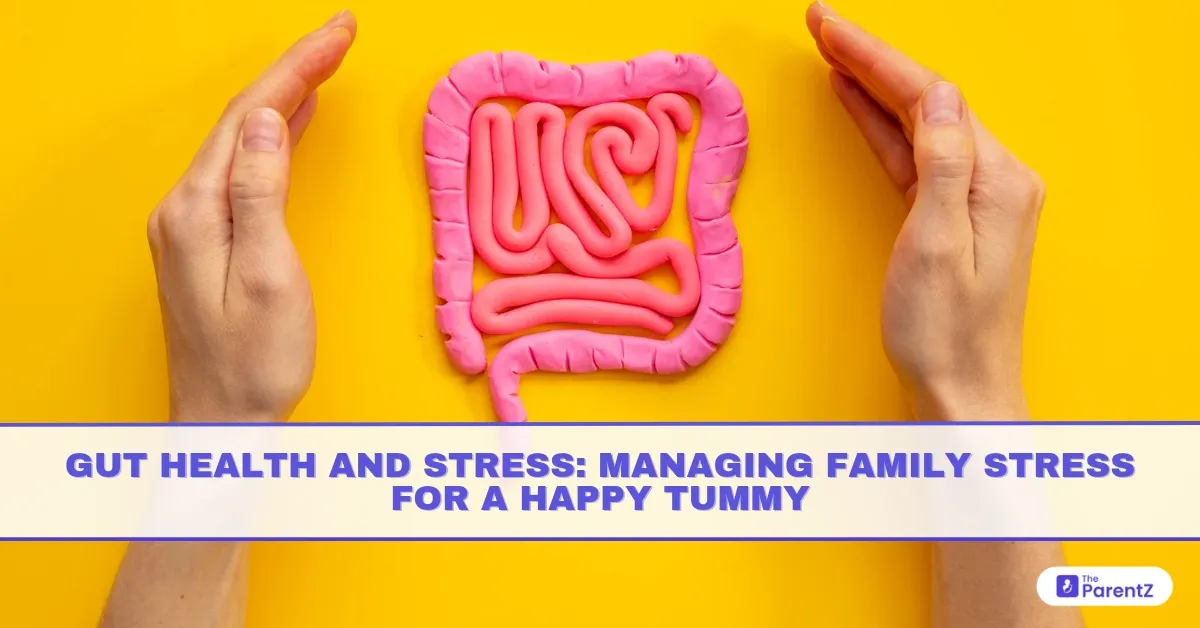Life with a family is full of love, joy, and, at times, overwhelming stress. Whether it’s juggling parenting responsibilities, work pressures, or household duties, stress can take a toll on your gut health. Many people experience digestive issues like bloating, constipation, or acid reflux during stressful periods. Understanding the gut-stress connection and learning how to manage family stress can help restore digestive balance and improve overall well-being.
The Gut-Brain Connection: How Stress Affects Digestion
Your gut and brain communicate through the gut-brain axis, meaning emotional stress directly impacts your digestive system. When you’re stressed, your body releases cortisol, a hormone that:
• Slows digestion, leading to bloating, constipation, or diarrhea.
• Alters gut bacteria, disrupting the balance of good and bad microbes.
• Increases gut inflammation, contributing to conditions like irritable bowel syndrome (IBS).
• Triggers cravings for sugary or processed foods, further harming gut health.
For a healthy gut, managing stress is just as important as eating well.
Managing Family Stress for a Happier Tummy
1. Create a Stress-Free Mealtime Routine
Mealtime stress can lead to digestive issues like indigestion and bloating. Try these tips:
• Eat slowly and mindfully—avoid rushing meals.
• Limit distractions—turn off screens and focus on eating.
• Encourage family bonding—engage in positive conversations at the table.
2. Prioritise Sleep for Gut and Stress Relief
Lack of sleep increases cortisol levels and disrupts digestion. Ensure:
• Consistent bedtime routines for the whole family.
• Relaxing activities before bed, like reading or deep breathing.
• Avoiding caffeine and heavy meals close to bedtime.
3. Incorporate Gut-Friendly Foods
Stress often leads to poor eating habits. Support gut health with:
• Probiotics (yogurt, kefir, kimchi) to maintain good bacteria.
• Prebiotics (bananas, garlic, onions) to feed healthy gut microbes.
• Fiber-rich foods (whole grains, fruits, veggies) to aid digestion.
• Magnesium-rich foods (nuts, seeds, spinach) to help relax muscles and ease stress.
4. Practice Relaxation Techniques Together
Teaching stress management as a family improves both mental and gut health. Try:
• Deep breathing exercises before meals.
• Family yoga or stretching to release tension.
• Journaling or gratitude practice to shift focus from stress to positivity.
5. Stay Active for a Healthy Gut and Mind
Exercise reduces stress and supports digestion. Encourage:
• Outdoor play and walks with the family.
• Dancing or home workouts for movement and fun.
• Simple core exercises to support gut function.
Conclusion
Managing family stress is key to maintaining a happy gut. By creating mindful eating habits, prioritising sleep, choosing gut-friendly foods, practicing relaxation techniques, and staying active, you can protect your digestive health and overall well-being.





Be the first one to comment on this story.